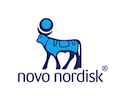Type 1 Diabetes - In Search of a Cure

Since Novo Nordisk was founded more than 90 years ago, the company has been committed to improving the lives of people with diabetes. Nothing would change the life of a child with type 1 diabetes more than a cure for this lifelong serious condition, but is a cure just a dream – or a potential reality?
Worryingly, the incidence of type 1 diabetes is growing, and unlike type 2 diabetes, no one really knows why. Yet type 1 diabetes is rarely in the spotlight, as the world focuses on the type 2 diabetes pandemic instead. “It’s a matter of numbers,” points out Dr Matthias von Herrath, head of Novo Nordisk’s type 1 diabetes research unit in Seattle, US. “Yes, there are many more cases of type 2 diabetes, but we can’t ignore the special needs of the children and adults with type 1 diabetes.”
A complex disease
Novo Nordisk has for many years been conducting research into delaying the onset of type 1 diabetes. “This is no small challenge,” explains Matthias von Herrath. “It’s only in the last five years that we’ve begun to understand the underlying mechanisms behind this disease. One reason is that the human pancreas isn’t as accessible as a mouse pancreas due to its location in the body. It’s also a sensitive organ that doesn’t react well to interference, so it’s difficult to derive information from it – and that inhibits our understanding of what causes type 1 diabetes.”
What is known is that, in a person with type 1 diabetes, the body’s immune system is triggered, which results in the body producing lymphocytes which attack – and destroy –the insulin-producing beta cells in the pancreas. Multiple factors are thought to play a role in the onset of the autoimmune reaction, including the environment and viruses. In addition, there is a heredity factor, which can be seen with genetically identical twins: if one twin develops type 1 diabetes, the other twin has a 35% risk of developing it too (14).
A window of opportunity
While the underlying cause of type 1 diabetes remains unclear, recent research has led to important insights. “It has now been discovered that, even late after onset, some people with type 1 diabetes still have functioning beta cells – they haven’t all been destroyed. We’ve even seen people 50 years past diagnosis who have some beta cell function (15). This indicates that the speed of he attack on the beta cells varies – which is therapeutically important as it gives us a window where we can possibly preserve the beta cells and delay the clinical onset of the disease,” says Matthias von Herrath.
Novo Nordisk has a number of ongoing research projects looking into delaying the onset of type 1 diabetes. “We want to reeducate the immune system not to attack the beta cells. We’re looking at combination therapy to increase the efficacy of the treatments while at the same time reducing any side effects. One of our projects involves both immune-active and metabolic-active compounds. The data are very strong and we’re making good progress: we hope to move into human trials in the next year or so,” says Matthias von Herrath.
See Novo Nordisk's Annual Report
For Further information
Email Annual Report
annualreport@novonordisk.com
14. Redondo MJ, Jeffrey J, Fain PR, Eisenbarth GS, Orban T. Concordance for islet autoimmunity among monozygotic twins. N Engl J Med 2008; 359(26):2849–2850.
15. Keenan HA1, Sun JK, Levine J, Doria A, Aiello LP, Eisenbarth G, Bonner-Weir S, King GL. Residual insulin production and pancreatic ß-cell turnover after 50 years of diabetes: Joslin Medalist Study. Diabetes 2010; 59(11):2846–2853.
About Novo Nordisk
Headquartered in Denmark, Novo Nordisk is a global healthcare company with more than 90 years of innovation and leadership in diabetes care. The company also has leading positions within hemophilia care, growth hormone therapy and hormone replacement therapy. Novo Nordisk employs approximately 41,500 employees in 75 countries, and markets its products in more than 180 countries. For more information, visit novonordisk.com.

